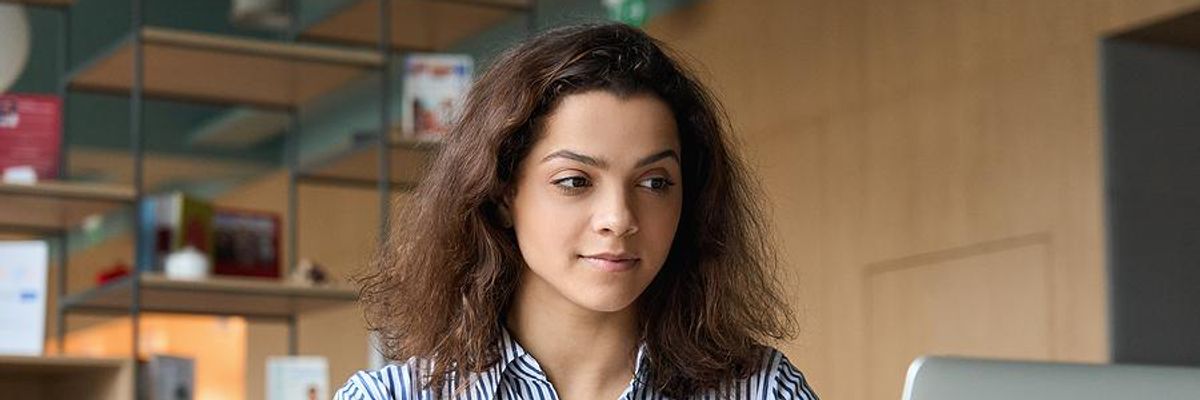Do You Really Want To Teach There? What To Know When Interviewing With Schools

As an educational consultant, I have had the opportunity to support school improvement efforts within rural, suburban, and urban communities. I can tell you that the schools that are successful in ensuring student achievement and growth are not determined by zip code but, rather, by employing a no-excuses approach to implementing best school practices and systems as well as by how they value and support students, staff, and learners’ families. Don’t have buyer’s remorse. Know if the school community that you are interested in joining is committed to student success before taking the plunge into that new teaching job.
Information on schools where you are interviewing, beyond the basics of teacher compensation, could be plentiful if you know where to look and what to ask. If you do find yourself interviewing for your next teaching gig, here are six “look fors” you should reflect upon before saying yes to any offer. After all, an interview process is just as much about finding the right school fit for you as it is for the school in selecting a new teacher.
Shine A Light On The Physical Space

Bigstock
In my work, I’m immediately drawn into a school community when I see teachers’ college pennants prominently displayed as well as information posted on classroom doors as to what the teacher might be reading on their own time. Schools get bonus points when hallway TVs loop photos from community events and bulletin boards not only display student work but indicate why certain student work is posted, how this work exemplifies quality and meets academic standards, and what students will do next to continue growing in their learning on that topic. You, too, should look for examples of school pride and learning culture, or lack thereof, as you wait to be called into your interview. As they say, a picture is worth a thousand words.
Know The School’s Data

Bigstock
“Without big data, you are blind and deaf and in the middle of a freeway (Geoffrey Moore).” While you may not have time to ask more than two or three questions at the end of your interview, school data is often available on school and state DOE websites. Do your research before the interview as this will help you to target the questions you do get to ask in your interview.
- What is the average tenure for administration? Teachers?
- If student overall achievement is low, is student growth high?
- Are suspensions low?
- What is the average attendance rate?
- What is the college acceptance AND matriculation rate?
- What is the ratio of teachers, counselors, and social workers to students? How do these statistics differ by student sub-population—i.e., gender, race, ELL, SPED, as well as for students on free and/or reduced lunch?
Knowing this information can provide a candidate with a sense of whether the school has a culture of high expectations for ALL students.
Evaluate The School’s Commitment To Equity

Bigstock
Chances are, if social-emotional and personalized learning are school priorities, teachers will have support with challenging student behaviors and students with special needs. Consider whether there is a restorative justice practice in the school—as opposed to a punitive discipline code of behavior—as research indicates that students of color are often disproportionally punished. Schools that build in student morning assemblies and advisory programs also are at an advantage in celebrating and promoting student exemplars of leadership. Also, how does the school support families of learners including families whose first language might not be English?
Determine How Professionalism Is Demonstrated

Bigstock
Teaching can feel like a lonely profession especially when one is teaching alone in self-contained classrooms all day. Ongoing collaborative professional development can, in contrast, make all the difference in forging productive relationships, among educators, that develop capabilities in pedagogy (teacher moves) that, in turn, provide students with the learning expertise they deserve.
- Will there be training and mentorship for new teachers entering the district?
- What is the overall PD plan?
- Will teachers have collaborative planning time to engage in collective classroom walkthroughs, effective co-teaching, and lesson study?
- Are there professional learning communities (PLCs) within the school?
- Are teachers encouraged and/or required to obtain additional credit hours and can some of these hours be used to earn micro-credentials and/or badges that allow classroom teachers to both remain in the classroom and take on teacher leadership roles?
- And, lastly, who are the big education thinkers—“the OGs”—whose work influences the teaching, leading, and learning practices in the school?
Consider The Amount Of Inclusivity Within Decision Making

Bigstock
In a recent Work It Daily article I wrote, "3 Reasons For The 'Big Quit' In Teaching," many educators commented in response that they do not feel valued, as professionals, by the school administration. Try to avoid this happening to you by sussing out how involved all school stakeholders are, collectively, in defining a school’s vision and the means through which the school will achieve that vision, i.e., the mission. Further, determine if teachers sit on the school leadership (SLT) team and if this team meets regularly throughout the school year.
Be Aware Of How You Will Be Evaluated

Bigstock
When I began teaching, many schools used pass/fail checklists to rate teacher performance as well as supervisor “impressions.” This was too subjective for my taste. Today, many states, like New Jersey where I live, now require that schools utilize evidence-based performance evaluation systems such as the Danielson Framework and/or the Marzano Focused Teacher Evaluation Model to ensure both clarity of teaching expectations and observer inter-rater reliability. If you know what performance evaluation system is used by the schools where you are interviewing, you are in a great position to discuss how your teaching practice, up to now, meets these criteria. You get bonus points if you also can demonstrate your past impact on student achievement and growth (STAR method in interviewing).
Choose Your Adventure

Bigstock
You’ve got this. Go with your gut when accepting or not accepting that next teaching position. Whatever the type of school in which you hope to teach, do learn as much about that school as possible before and during the interview process. Hopefully, these “look fors” will help you feel more confident about any decision you ultimately make when it comes to your next teaching assignment. Good luck!
If you would like additional ideas on how to impact student lives without sacrificing your own, and have a life teaching, check out my quick hack teaching courses here. You can also reach me on LinkedIn.
- 3 Reasons For The “Big Quit” In Teaching - Work It Daily ›
- 5 Planning Tools For Mastering The Curve Balls Of Teaching - Work ... ›
- 10 Things I Wish I Knew About Teaching When I Started - Work It Daily ›
- 5 Job Search Tips For Teachers - Work It Daily ›
- 6 Things To Know Before Becoming A Teacher - Work It Daily ›
- The 3 Best Resume Tips For Teachers - Work It Daily ›
- 5 Reasons Why Teachers Are STILL Not OK - Work It Daily ›
- How To Address Teacher Shortages In The U.S (And Beyond) - Work It Daily ›
- How And Why All Teachers Must Teach Vocabulary - Work It Daily ›









